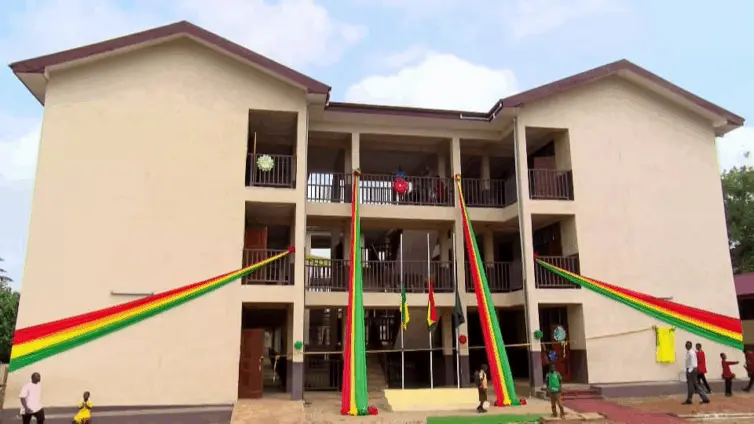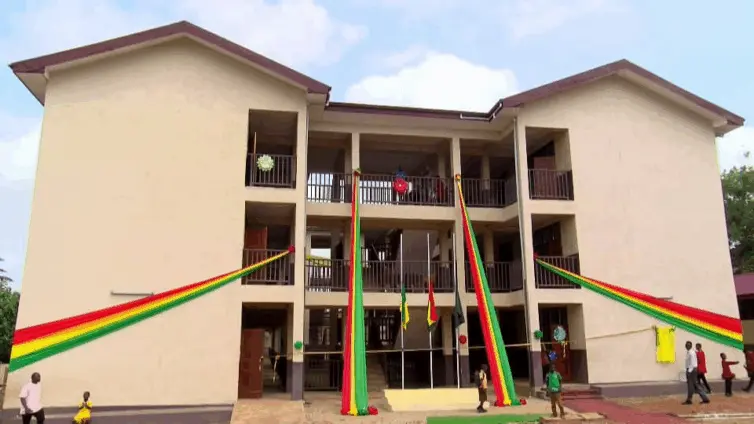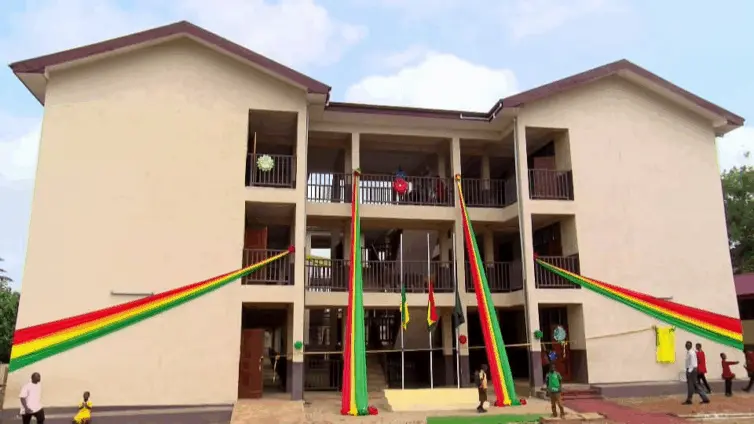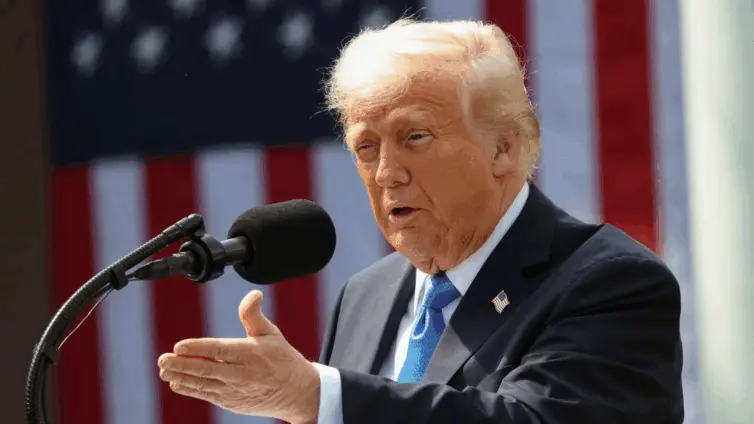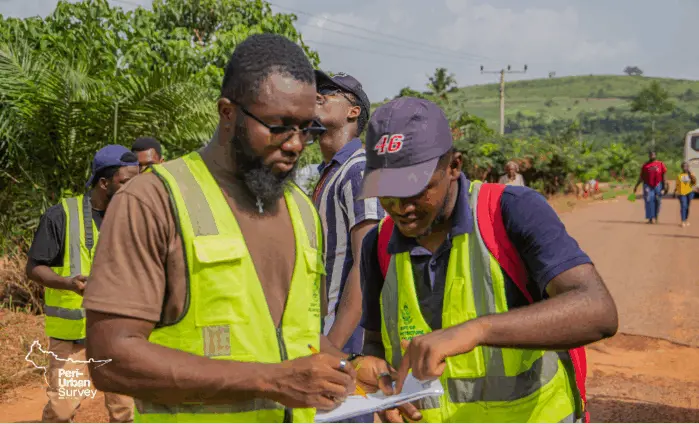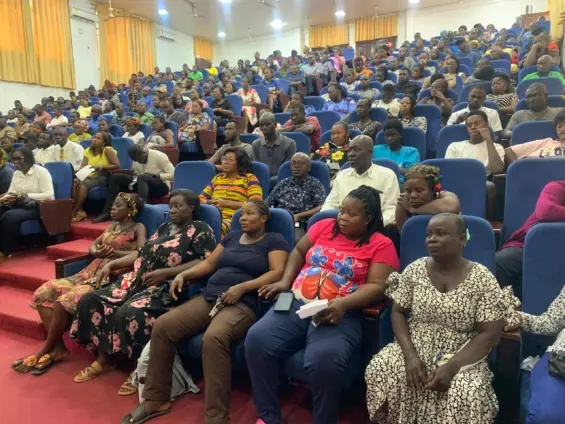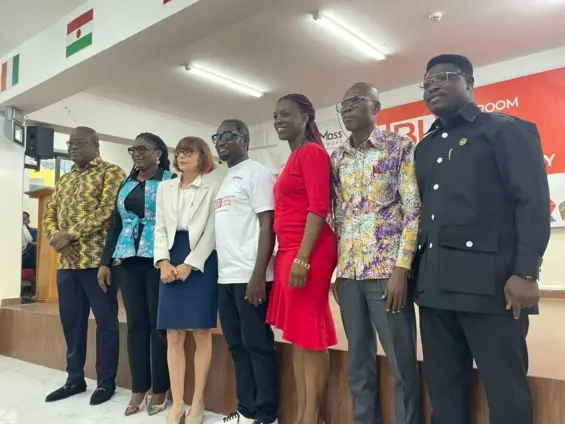In a strategic move to bolster food production and equip students with vital agricultural skills, the Presidential Initiatives in Agriculture and Agribusiness (PIAA) has launched a ‘School Farm Initiative‘ in collaboration with the Ghana Education Service (GES) and GETFUND. This ambitious program aims to transform underutilized school lands into productive agricultural ventures, promising a more sustainable future for Ghanaian schools and a step towards greater food security.
Dr. Peter Boamah Otokunor, Director of Presidential Initiatives in Agriculture and Agribusiness, announced the School Farm Initiative via a recent Facebook post, highlighting the potential impact of this collaborative effort. The primary goal is clear: to convert dormant school properties into thriving agricultural zones, fostering both practical skills and a reliable food source.
This launch reflects a concerted effort to address pressing concerns surrounding food security within schools and to invigorate agricultural education, providing students with hands-on experience in modern farming techniques.
Unveiling the PIAA School Farm Initiative
The core mission of the School Farm Initiative is to convert idle school lands into productive, working farms. This initiative seeks to not only enhance agricultural output, but also provide valuable educational opportunities for students across Ghana. Dr. Otokunor emphasized the importance of the initiative, stating, “Last week, we engaged the Ghana Education Service on our ‘School Farm Initiative’, an initiative targeted at setting up farms in the various High Schools to upscale food production in Ghana.”
To ensure the smooth implementation of this vision, a joint technical team has been formed, comprising experts from GES and GETFUND. This collaborative approach underscores the commitment of all parties to the success and sustainability of the School Farm Initiative, fostering a strong partnership between PIAA, GES, and GETFUND.
Aligning with Mahama’s Vision for Food Sovereignty
The School Farm Initiative is deeply rooted in President John Dramani Mahama’s broader vision for food sovereignty and agricultural advancement in Ghana. This initiative aims to empower schools to produce their own food, reducing reliance on external procurement and fostering a sense of self-sufficiency.
Dr. Otokunor further explained, “This initiative is in line with President John Dramani Mahama’s vision of producing the food we consume in schools, to cut down the expenditure on procuring food for the schools.” By aligning with this vision, the School Farm Initiative aims to contribute significantly to food sovereignty, skills transformation, and the modernization of agriculture in Ghana.
Moreover, this initiative has the potential to generate substantial economic benefits by reducing the costs associated with food procurement for schools, freeing up resources for other essential educational needs.
GES and GETFUND: Key Partners in the Initiative
The Ghana Education Service (GES) plays a pivotal role in the successful implementation of the School Farm Initiative within schools nationwide. Their involvement ensures that the program is effectively integrated into the educational curriculum, providing students with meaningful learning experiences.
GETFUND’s contribution extends to the funding and resource allocation necessary to establish and maintain the school farms. This financial support is crucial for providing the necessary infrastructure, equipment, and training to ensure the long-term sustainability of the School Farm Initiative.
The synergy between PIAA, GES, and GETFUND is paramount to the overall success of the initiative. This collaboration ensures that the School Farm Initiative is well-coordinated, efficiently managed, and capable of achieving its intended outcomes.
The Future of School Farms in Ghana
The School Farm Initiative holds immense promise for enhancing food security within schools and fostering practical agricultural skills among students. By providing a hands-on learning environment, the initiative empowers students to develop a deeper understanding of farming techniques and sustainable agricultural practices.
Looking ahead, there is potential to expand the School Farm Initiative to encompass even more schools across Ghana, amplifying its impact on food production and agricultural education. Addressing potential challenges and implementing effective solutions will be crucial for ensuring the long-term success and scalability of the initiative.
In conclusion, the PIAA School Farm Initiative represents a significant step forward in promoting food security, agricultural education, and sustainable development in Ghanaian schools. By aligning with John Mahama’s vision and leveraging the expertise of GES and GETFUND, this initiative promises to transform school lands into productive agricultural zones, fostering a brighter future for Ghanaian students and communities. We encourage all stakeholders to actively support and participate in the School Farm Initiative, contributing to its success and realizing its full potential.
Image Source: MYJOYONLINE


